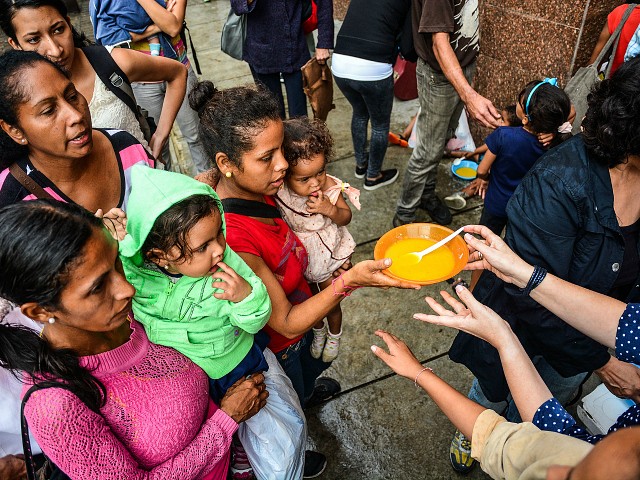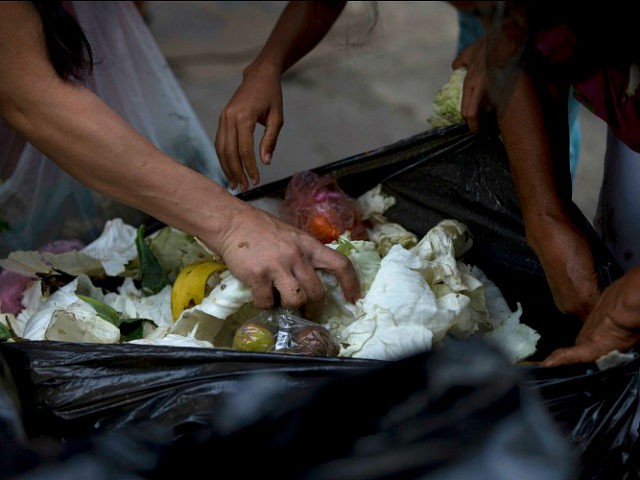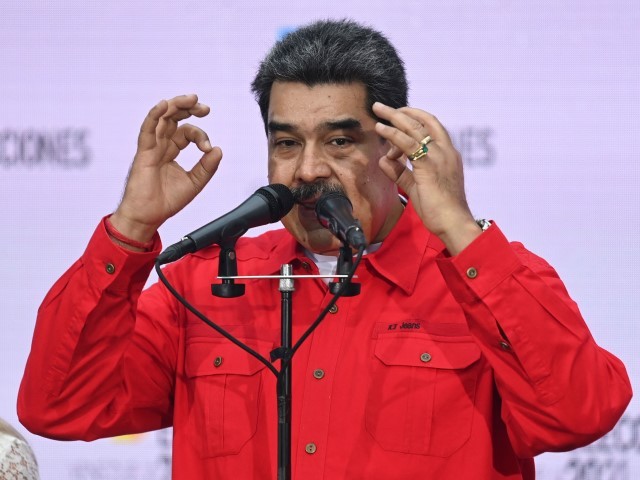A family in Venezuela required on average the equivalent of 28.32 months’ worth of the country’s minimum wage to be able to properly afford food during September, according to data published by the Center for Documentation and Social Analysis of the Venezuelan Federation of Teachers (CENDAS-FVM) on Sunday.
The data is derived from the cost of the “market basket,” a list of 60 basic items that would, in normal circumstances, cover the basic food and nutritional needs of a family living in Venezuela (roughly equivalent to the American Consumer Price Index). The basket is used by CENDAS-FVM and other organizations – in lieu of proper and transparent official data from the country’s ruling socialist regime – to gauge the effects inflation has on Venezuelans’ purchasing power
According to the organization’s research, a Venezuelan citizen required on average 3,681.87 Venezuelan Bolivars ($446.83 at the time the data was published) to be able to afford the “food basket” during September, a 15.9 percent increase from the previous month. The amount excludes other possible family expenses, such as for health, education, or clothing.
Venezuela’s current monthly minimum wage, which socialist dictator Nicolás Maduro last raised by 1,757 percent in March, is currently set at 130 bolivars. While 130 bolivars were worth roughly $30 at the time of Maduro’s March minimum wage raise, the amount is now only worth approximately $15 as of October 24’s official exchange rate, due to the constant devaluation of the Venezuelan currency.
The current iteration of the Venezuelan currency, the “digital bolivar,” was launched on October 1, 2021. Thanks to Venezuela’s ongoing crisis – caused by two decades of socialist policies – it has already lost half of its value within its first year of circulation. The United States dollar, once demonized, and which the socialist regime at one point made illegal for citizens to have or trade with, is now freely used by everyone to set the prices of goods and services in the country.
As a result, a Venezuelan citizen needs to earn at least 122.72 bolivars (roughly $14.89) per day to be able to cover basic food expenses for their family; an entire month’s minimum wage only covers 94 percent of one day’s food for their family.

Hunger in Venezuela has worsened, and non-governmental organizations and the Catholic Church have held food aid days to help people and children living on the streets or in extreme poverty in Caracas, Venezuela. This photo is from November 30, 2017. (Photo by Roman Camacho/NurPhoto via Getty Images)
While wages in the public sector can be higher than the base 130 bolivars based on a person’s education level and rank, even the topmost officials fall overwhelmingly short of being able to cover all of a family’s food expenses.
Private sector wages, which were estimated to have averaged US$126.50 per month by September 2022, also are insufficient to properly feed a family. As a result of insufficient wages, many have shifted from working in either public or private sector companies to self-employment, while others are heavily dependent on remittances from abroad to be able to palliate the unending effects of inflation.
The recent data published by CENDAS-FVM complements that published by the Venezuelan Observatory of Finances on October 6, which measured Venezuela’s inflation rate for the month of September at 11.5 percent – for a total of 111.8 percent accumulated inflation in 2022 so far. Its version of the “food basket” was calculated at a more reserved US$375 for September; Venezuela’s monthly minimum wage only covers four percent of it.
Due to inflation, and ultimately because of socialism’s inexorable collapse, Venezuela has had to “reboot” its currency three times during the 23 years of Bolivarian Revolution: one time during Hugo Chávez’s rule (cutting three zeroes with 2008’s Bolivar Fuerte), and twice during Nicolás Maduro’s (cutting five zeroes with 2018’s Sovereign Bolivar and six zeroes with 2021’s Digital Bolivar), removing a total of fourteen zeros of the Bolivar’s scale across the three reboots.
While foreign media analysts declared Venezuela officially out of hyperinflation at the start of 2022, the country still suffers from high inflation rates, despite the socialist regime’s insistence in touting an alleged recovery of Venezuela’s economy.
Studies indicate that, by 2021, 76.6 percent of the country’s citizens lived under conditions of extreme poverty. The precarious living conditions of Venezuelan citizens, and the ever-increasing cost of food, are two of the main issues fueling the nation’s migrant crisis. More than 7.1 million citizens have fled from the country’s authoritarian socialist regime as of September 2022.
Christian K. Caruzo is a Venezuelan writer and documents life under socialism. You can follow him on Twitter here.


COMMENTS
Please let us know if you're having issues with commenting.